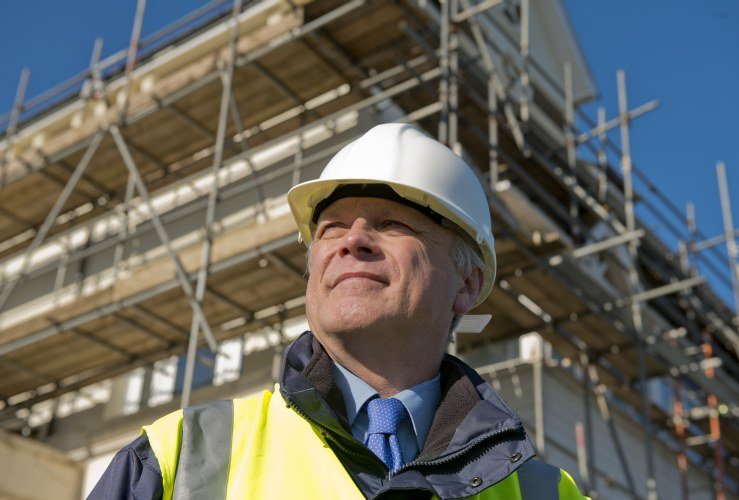
The Prime Minister has criticised British home-builders for not supplying enough new properties.
She said builders are developing new homes too slowly and threatened them with action if they did not improve.
“The gap between permissions granted and homes built is still too large,” Ms May said.
“I want to see planning permissions going to people who are actually going to build houses, not just sit on land and watch its value rise.
“I expect developers to do their duty to Britain and build the homes our country needs.”
A firm’s ability to obtain new planning permissions from local authorities could be jeopardised if their records demonstrate a recalcitrance in developing new homes.
Are builders too slow?
While the Prime Minister says they are, the real answer to the question is arguably more complicated.
Developers claim they are putting up new homes as quickly as is practicable.
However, some campaign groups say developers do their work slowly on purpose, ostensibly because they and speculators sit on land and watch the value rise - in order to present an attractive accounting profit.
This behaviour is also known as 'land banking'.
Between 2006 and 2014 1,725,382 homes were green-lit in England, but three years on, only 816,450 had been completed. Critics suggest this demonstrates how widespread land banking is.
However, developers argue that this is an overly simplistic view. In order to remain afloat, home builders need a large inventory stretching years into the future. With a minimal or non-existent land inventory, staying in business would be difficult, they maintain.
A study for the Mayor of London revealed that one quarter of all permissioned schemes in the capital were owned by land traders and speculators.
Other studies have been less conclusive as regards the practice of land banking.
In terms of hard business, it is perhaps understandable that developers do not want to place a glut of new homes on the market at the same time, since prices would be squeezed.
Whether this is considered land banking in the commonly-understood sense is up for debate.
Both Labour and the Conservatives have tabled the idea of compulsory purchase orders, although Labour has been the more direct of the two.
Labour also plans an “English Sovereign Land Trust” which would be able to buy land compulsorily. Crucially, the price offered would exclude any potential planning approval increase value, thereby, say Labour, constructing new council houses would be much less costly.
Are sanctions on private builders the answer? While they may seem popular among the Tories and Labour, numerous economists say a straightforward land value tax would present a more workable solution.
Some take the view that local authorities should be given the power and resources to begin building homes again, as they did in the 1980s.
And then there is also the view that home builders are indeed building new homes as fast as they can, with demand roughly matching supply. Ian Mulheirn of Oxford Economics supports this view, suggesting house prices have been rising largely because of falling interest rates, a factor that increases all asset prices.
Whatever the solution, the topic of land banking and an inadequate supply of new homes will remain on the agenda for some time.




